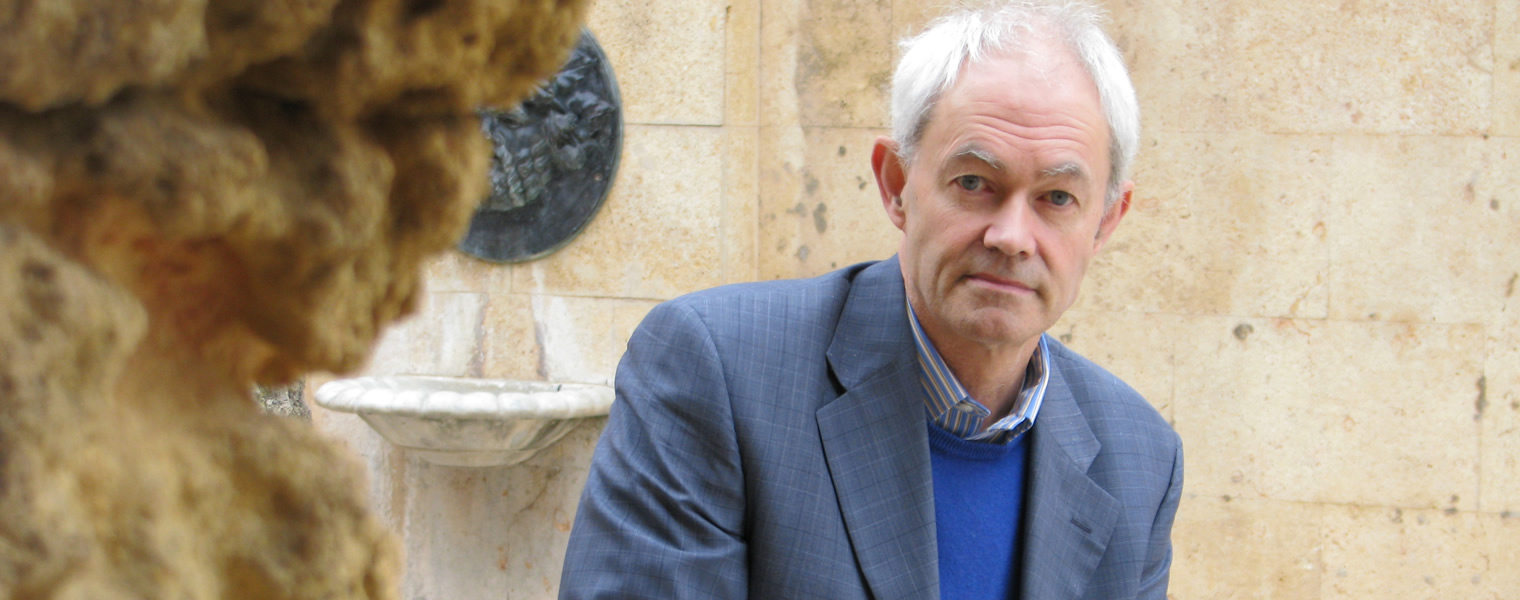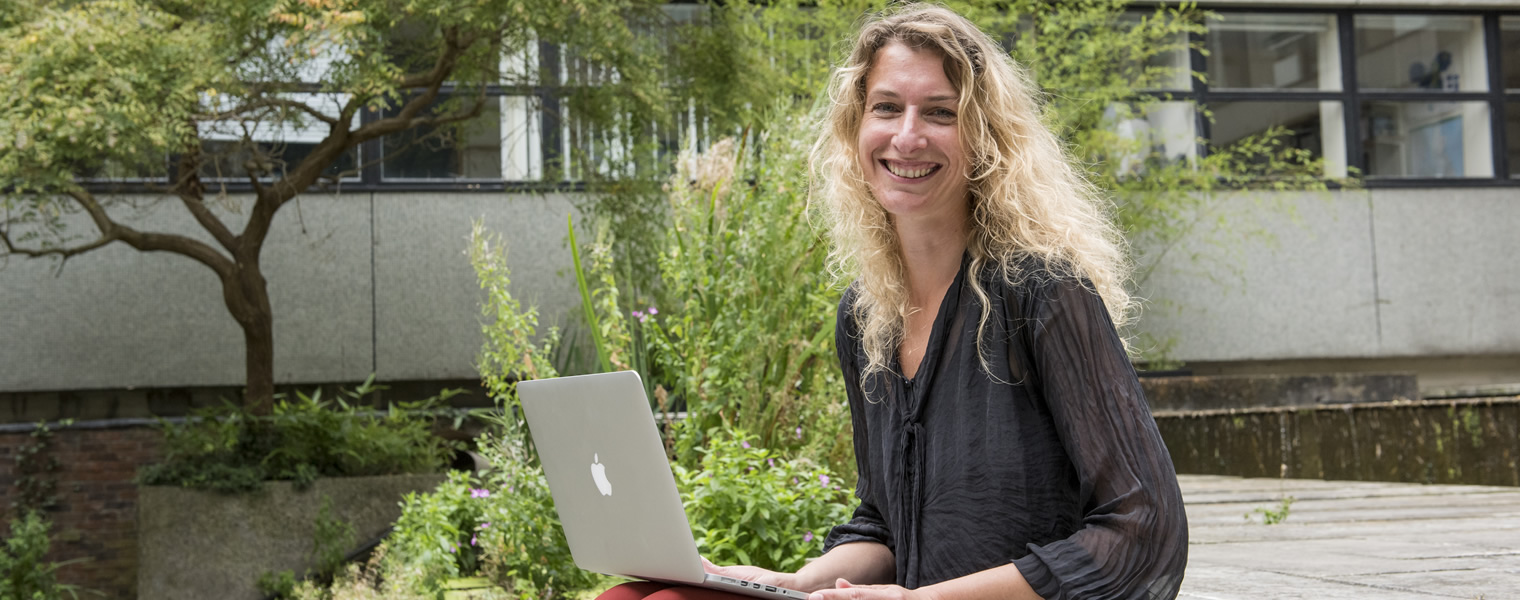Hartley News Online Your alumni and supporter magazine
The UK’s decision to leave the European Union (EU) has created uncertainty for us all, not least on whether university researchers should continue to apply for EU grants. If you’re a researcher considering whether to apply for your next EU grant, read on! Southampton Connects speaks to colleagues who have successfully applied for EU funding and finds out how the University’s EU Office can support you in making your application.
In August, the Chancellor of the Exchequer released a statement that successful Horizon 2020 bids will be underwritten by UK funding even if the project continues beyond the date that the UK exits the EU. In addition, the European Commission issued an updated version of their standard guidance on evaluating projects which stated: ‘Until the UK leaves the EU, EU law continues to apply to and within the UK, both when it comes to rights and obligations. This includes the eligibility of UK legal entities to participate and receive funding in Horizon 2020 actions. Experts should not evaluate proposals with UK participants any differently than before.’
Here at the University, we are confident about our ability to continue to play a key role in research collaborations with partners in Europe. The University is currently involved in 57 Horizon 2020 EU projects with 430 partners worth over £220m, of which over £40m will come direct to Southampton over the next four to five years. The University has recently made a strong case for continued EU engagement, through its submission to a government inquiry.
As such, the University encourages colleagues to continue to apply. You can read Professor Tim Elliott’s message about applying for EU funding again here.
But what is happening in practice here at the University, and what support is available? Here are some views from colleagues across the University who have been actively applying for EU funding, and information on support available.
Professor Simon Keay
Associate Dean, Research and Enterprise, for Humanities
“I am the director of an international project of three years standing that has received a very large grant from the European Research Council (ERC). This has enabled me to undertake high-profile interdisciplinary research into the ports of the Roman Mediterranean with French, German, Italian, Spanish and Austrian colleagues that otherwise would have been simply impossible. It is also helping me to leverage greater impact for my research and to build valuable long-term strategic links.
“The catastrophic referendum vote to leave the EU came as a shock to me, as I know it did for many colleagues, giving me cause for major concern at several levels, not least the involvement of UK universities in current and future EU-funded projects. Younger EU colleagues may conclude that they have no long-term future in being part of a new funding bid involving UK institutions, while UK researchers may feel that there is now no point in applying for a new ERC or Horizon 2020 bid. In fact, the opposite is true.
We should be sharply increasing the number of our bids to the EU over the next few months, both to the ERC and to Horizon 2020, rather than holding back: many of our UK competitors will be doing precisely this. I have come across a lot of support from EU partners for precisely this approach.
“Upping our bids to the EU is the University’s position. It is also a stance supported by Philp Hammond’s recent promise to honour all current projects and those bids submitted prior to the UK leaving the EU. Indeed, as a sector, we need to demonstrate such a high level of demand for EU funding to our political leaders that they recognise the imperative to negotiate an arrangement whereby the UK pays in to the ERC and Horizon 2020 schemes to ensure our continued access to large-scale funding and EU-based collaborative networks. To do anything else would be prejudice future levels of research funding, from whichever source.”
Professor Robert Read
Head of Clinical and Experimental Sciences, Professor of Infectious Diseases, and
Honorary Consultant Physician to Southampton University Hospitals NHS Trust
“We have just been awarded an €28m consortium grant in the Horizon 2020 Innovative Medicines Initiative programme, to research whooping cough. The consortium includes scientists and clinicians from 10 countries, and €2.6m will be coming to Southampton.
“I did discuss Brexit with my colleagues in the consortium and, so far, the impression I get is that UK science is respected so much that there will be continued reliance on UK investigators, notwithstanding any changes that might occur to the funding regulations. Swiss colleagues (who are part of our consortium) have been quite reassuring about the likely arrangements that will emerge for UK science downstream of the negotiations. I am positive.”
Find out more about this research here.
Dr Darja Reuschke
Associate Professor in Geography and Environment
“I applied for a five-year ERC Starting Grant in 2014 for the first time and was successful. This was four and a half years after I finished my PhD and at a time when I felt that I had established a track record in a research topic that was of great interest across various disciplines in the social sciences and computer sciences, but was widely neglected. My project, WORKANDHOME, investigates how home-based self-employment is currently reshaping societies.
“I went to a UK Research Office event on how to write an ERC Starting Grant application, which was extremely insightful and helpful. I also contacted a few people I knew at the time who got a frontier grant. It was helpful to read successful applications but in the end it is the big idea that counts. ERC frontier grants are about research excellence and academic impact.
“The application procedure is very straightforward. You don’t need to think about a dissemination plan and engagement with users in industry and government (which would require well-developed networks), but can focus on your academic contribution. I engaged with a wide range of literatures across various disciplines and highlighted how my research would contribute to theory, how it would change how we think about society, economy and neighbourhoods. My project team itself was not very interdisciplinary, but I stressed the relevance of this research for other disciplines.
“Given that the funder is the European Commission, I incorporated two European partners in my team and highlighted the relevance of my research for Europe. I had worked with these partners before and could argue that this limited the risk involved in my project. We will continue working in close partnership, despite the Brexit vote.
“The grant is like a fellowship and enables me to do exciting research and to focus on academic output. I spend 60 per cent of my time on the project and this is supported by my department. I just moved to Southampton and the grant is fully portable. I don’t see how the ‘Brexit’ vote will change anything in relation to what we can achieve on this project or how we work together as a team.”
Professor Robert Raja
Professor of Materials Chemistry and Catalysis
“We participated in a recent Horizon 2020 call that was aimed at designing solid catalysts, which could be used in the production of fine-chemicals and pharmaceuticals.
“Our proposal was targeted at enabling more efficient and sustainable catalytic routes that would be attractive from an industrial standpoint, both in terms of flexibility and versatility. This was a two-stage proposal with implementation aimed to start at Technology Readiness Level (TRL) 3 (proof-of-concept laboratory studies) with the intention of targeting TRL 5 (validation at industrial level) over a four-year period.
“The consortium has four academic and four industrial partners from across Italy, France, Germany, Spain and Belgium. We were informed by the European Commission on 14 July (after the Brexit vote) that our project was fully funded and we are currently working on the preparation of the grant agreement.
“It was pleasing that the overall evaluation of the proposal included the following comments: ‘Complementarity of the participants is excellent, encompassing research, innovation, process development, scale-up, industrial aspects, as well as knowledge transfer. It engenders all the requirements for enabling the delivery of innovative products to the market place with high confidence. The objectives are cutting-edge and the approach represents breakthrough thinking.’
It is indeed reassuring that ‘innovative research and multidisciplinary collaborations’ continue to be the key markers for success.
Supporting your EU funding applications: the University’s EU Office
The EU Office, part of Research and Innovation Services, is dedicated to supporting and assisting research staff and students in accessing European funding. It is very much ‘business as usual’ for EU Horizon 2020 proposals and projects, including bid support, contracts and finance.
The EU Office keeps fully up-to-date with any developments coming from government and associated organisations. The University is fully engaged with information gathering and briefings by Universities UK International and the Russell Group and is in regular contact with the UK Research Office in Brussels on practical matters.
The EU Office is happy to answer questions on the operational effects of Brexit at any time. Please contact the team on soton-eu-office@southampton.ac.uk or +44 (0)23 8059 8561.
To keep up with the latest developments, visit the University and Europe webpages
For detailed information on EU funding, you can also view the EU Funding pages of the Researcher Portal SharePoint site.



